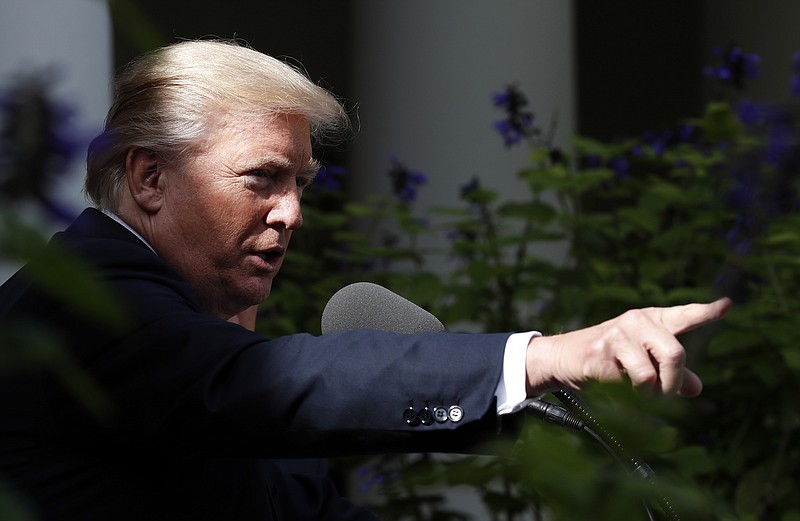MEXICO CITY - Everyone here wants to know what's going to happen to NAFTA - the North American Free Trade Agreement, which has closely linked the economies of Mexico, Canada and the United States for more than two decades. President Donald Trump has described NAFTA as the "worst trade deal ever made." But will he actually destroy it?
Until just a few days ago I was pretty sure that he wouldn't. My guess was that he would negotiate some minor changes to the agreement, declare victory and move on. Markets seemed to agree: The Mexican peso plunged after Trump's election but then rebounded, effectively reaching the verdict that nothing terrible would happen.
But I've been revising that view in light of recent events - especially Trump's health care temper tantrum. Breaking up NAFTA would be terrible for Mexico and bad for the U.S. It would horrify major U.S. business interests, which have spent two decades building their competitive strategies around an integrated North American market. But it might be good for Trump's fragile ego. And that's a reason to fear the worst.
Let's start by admitting that NAFTA, although it led to rapid growth in both Mexican exports to the U.S. and U.S. exports to Mexico, hasn't lived up to the expectations of some of its proponents.
In 1994, when the agreement went into effect, many people hoped that it would jump-start rapid growth in the Mexican economy; it didn't. Some proponents also argued that the United States would run large surpluses in its trade with Mexico; in fact, after its 1995 financial crisis Mexico began running surpluses instead.
Furthermore, growing trade definitely hurt some U.S. workers. Some U.S. companies laid off workers and moved production to Mexico.
By any measure, the costs inflicted by NAFTA were far smaller than those created by imports from China - and those in turn were far smaller than those created by changing technology. For example, the decline in coal-mining employment - caused almost entirely by technological change - or the collapse in truckers' wages - reflecting deregulation and the collapse of union power - had nothing to do with NAFTA. Still, the trade deal caused some real pain.
But admitting this unpleasant reality has almost no bearing on the question of what to do now.
We now live in a North American economy built around the reality of free trade. In particular, U.S., Canadian and Mexican manufacturing are deeply enmeshed with one another.
As a result, breaking up or degrading NAFTA would have the same disruptive effects that came from NAFTA's creation: Plants would close, jobs would disappear, communities would lose their livelihoods. And, yes, many businesses, small, large and in some cases huge, would lose many billions of dollars.
So what I and others have been assuming is that those realities would stay Trump's hand. But now I'm not so sure.
For one thing, NAFTA negotiations are going very badly. America's demands - requiring renewal every five years, taking away the ability of businesses to appeal government actions - would undermine the predictability, the assurance of future market access, that was the trade agreement's main point.
Meanwhile, documents leaked to The Washington Post show key administration advisers attributing virtually every social ill, from spousal abuse to divorce, to the loss of manufacturing jobs - and we know that the administration, wrongly, believes that trade treaties are the cause of those job losses.
Most important, look at what Trump has been doing with his open, indeed gleeful sabotage of the U.S. health care system. We've now seen Trump deliberately hurt millions of people and inflict billions of losses on a major industry out of sheer spite.
If he's willing to do that on health care, why assume he won't do the same thing on international trade policy?
NAFTA, then, is at real risk. And if it does get destroyed, the only question is whether the consequences will be ugly, or extremely ugly.
The New York Times
